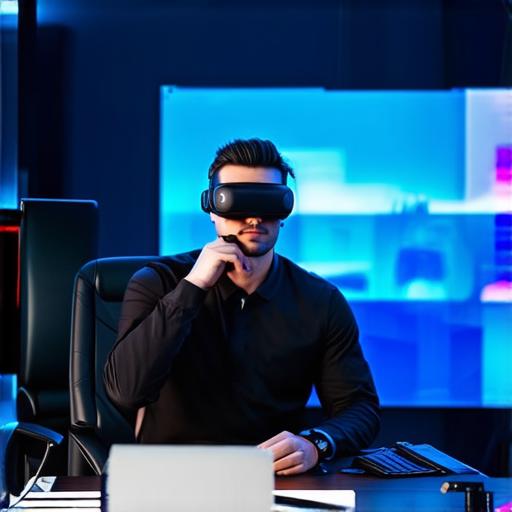Facebook’s metaverse is an exciting new concept that has been generating buzz and interest among tech enthusiasts and developers. The metaverse refers to a virtual world that exists beyond our physical reality, accessible through advanced technology such as virtual reality (VR) and augmented reality (AR). This world can be used for gaming, socializing, education, entertainment, and more.
What is Facebook’s Metaverse?
Facebook’s metaverse refers to a virtual world that is accessible through advanced technology such as VR and AR. This world can be accessed using devices such as headsets, smartphones, or computers. The metaverse is designed to be an immersive experience that allows users to interact with each other in a virtual environment, rather than through text-based messaging or video calls.
Facebook has been working on its metaverse project for several years and has already made significant investments in this area. In 2018, the company acquired VR startup Oculus VR for $2 billion, and in 2019, Facebook CEO Mark Zuckerberg announced that the company was planning to invest billions of dollars in building a metaverse.
How does Facebook’s Metaverse work?
The metaverse is built on top of existing technology such as blockchain, which allows for secure and decentralized data storage. This data is used to create virtual objects and environments that can be interacted with in real-time. Users can create avatars that represent them in the virtual world and use these avatars to interact with other users and objects within the metaverse.
Potential Benefits of Facebook’s Metaverse
The potential benefits of Facebook’s metaverse are numerous. For example, the virtual world could be used for gaming, allowing users to engage in interactive and immersive experiences that would be impossible to achieve in the real world. This could also provide a new platform for socializing and connecting with friends and family from around the world.
The metaverse could also have significant educational benefits, providing users with access to virtual simulations of real-world environments such as museums, historical landmarks, and scientific experiments. This could be particularly useful in remote areas where access to these resources is limited.
Another potential benefit of Facebook’s metaverse is its ability to create new opportunities for businesses and entrepreneurs. For example, companies could use the metaverse to launch products or services that are not possible in the physical world, such as virtual fashion stores or immersive theme parks.
Real-life examples of successful metaverse projects
There are already several successful metaverse projects that have been launched in recent years. One example is Decentraland, a decentralized metaverse platform that allows users to create their own virtual worlds and experiences. Another example is VRChat, a social VR platform that allows users to interact with each other in a virtual environment.
Challenges facing Facebook’s Metaverse
Despite the potential benefits of Facebook’s metaverse, there are several challenges that must be overcome to bring this concept to fruition. One of the main challenges is the lack of standardization in the industry, which makes it difficult for different platforms and devices to work together seamlessly. This could make it difficult for users to navigate between different virtual worlds and experiences.
Another challenge is ensuring that the metaverse is accessible and inclusive for all users, regardless of their technical expertise or financial resources. For example, some users may not have access to the latest VR technology, which could limit their ability to participate in the metaverse.

FAQs
Q: What is Facebook’s Metaverse?
A: Facebook’s metaverse refers to a virtual world that is accessible through advanced technology such as VR and AR. This world can be accessed using devices such as headsets, smartphones, or computers.
Q: How does Facebook’s Metaverse work?
A: The metaverse is built on top of existing technology such as blockchain, which allows for secure and decentralized data storage. This data is used to create virtual objects and environments that can be interacted with in real-time. Users can create avatars that represent them in the virtual world and use these avatars to interact with other users and objects within the metaverse.
Q: What are some potential benefits of Facebook’s Metaverse?
A: The potential benefits of Facebook’s metaverse are numerous, including gaming, socializing, education, entertainment, and more. It could also provide new opportunities for businesses and entrepreneurs to launch products or services that are not possible in the physical world.
Q: What are some real-life examples of successful metaverse projects?
A: There are already several successful metaverse projects that have been launched in recent years, including Decentraland and VRChat.
Q: What are some challenges facing Facebook’s Metaverse?
A: Some challenges facing Facebook’s metaverse include the lack of standardization in the industry, ensuring accessibility for all users, and addressing privacy concerns associated with virtual environments.
